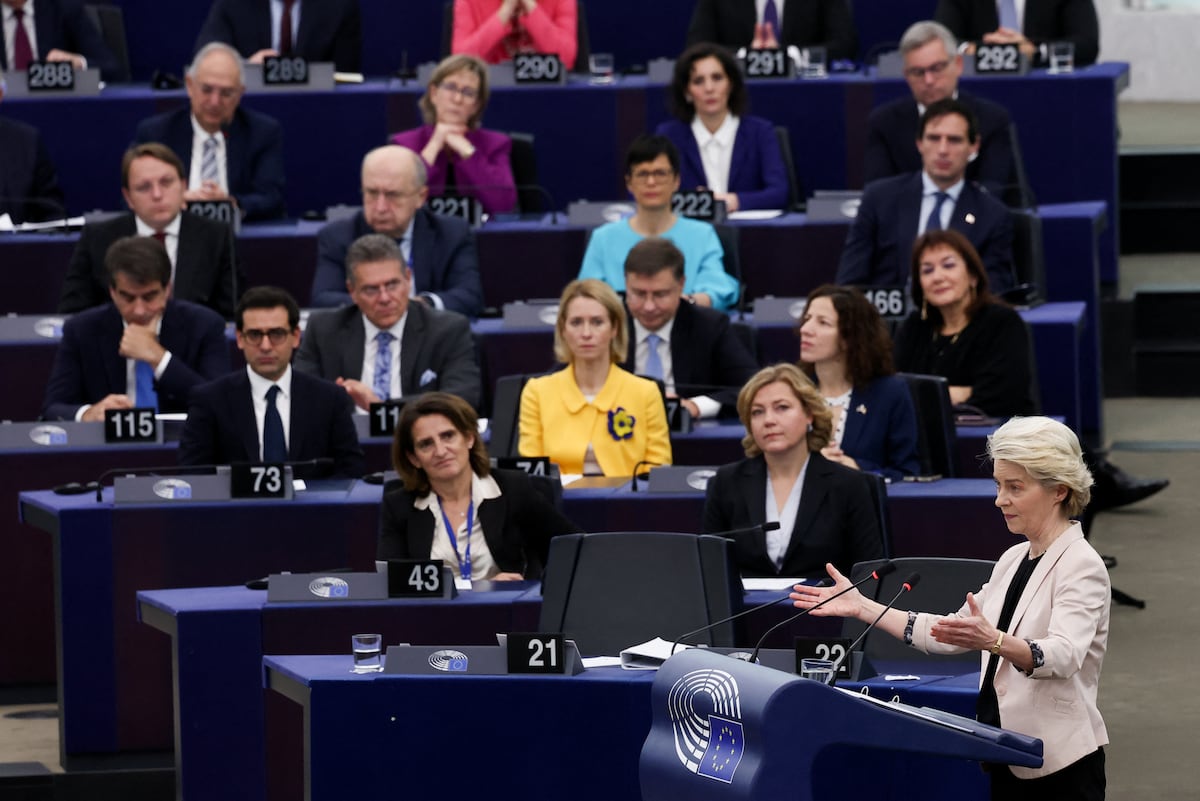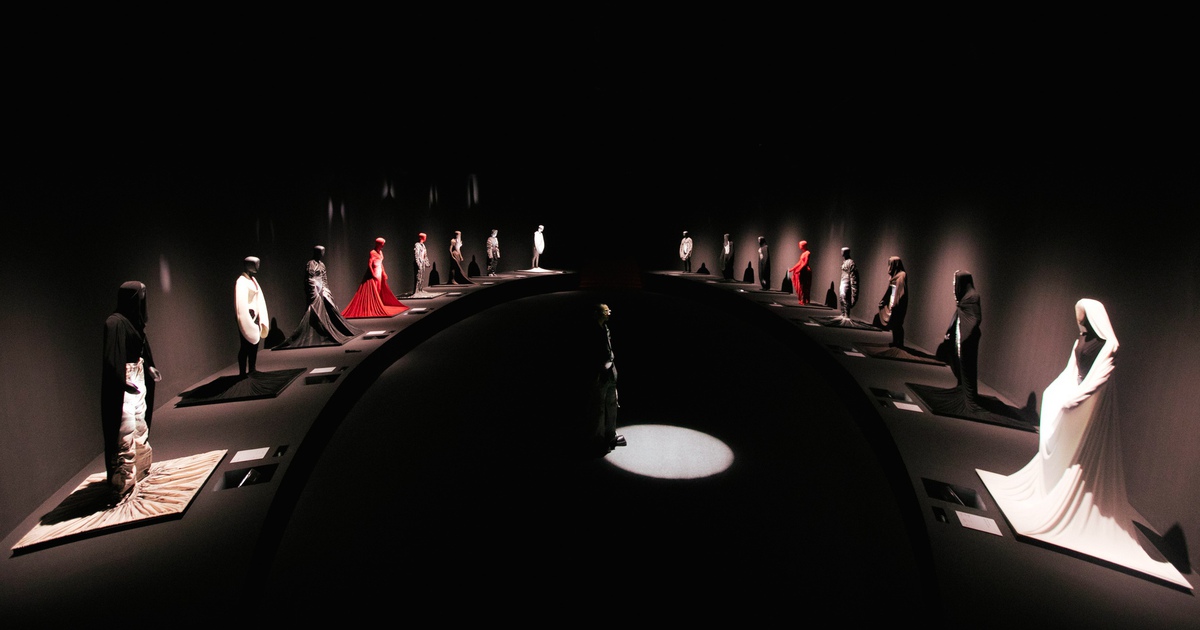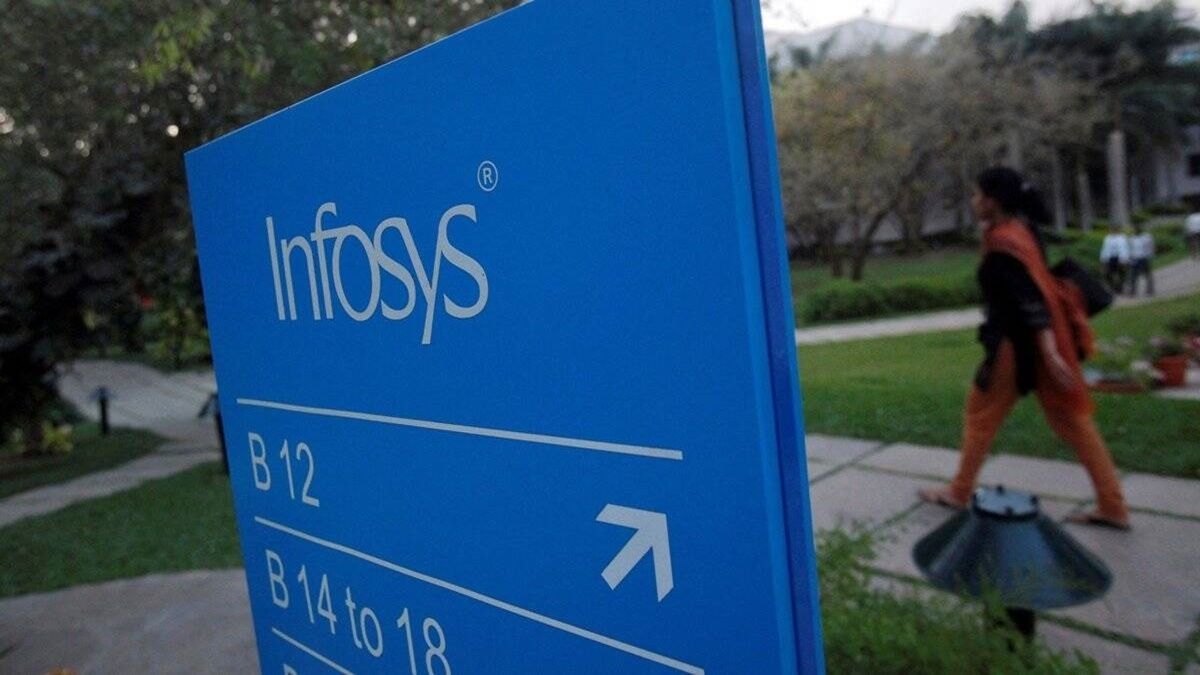The first hours after the ceasefire between Israel and the Lebanese militia Hezbollah are being experienced on the border between both countries with relative calm and without serious incidents. After 11 months of war, thousands of Lebanese civilians began returning to their homes this morning after the truce officially began at four in the morning, one hour less in mainland Spain. The Israeli army, which has penetrated six kilometers into Lebanon since the invasion of the country began on October 1, plans to withdraw progressively over the next 60 days.
Meanwhile, the Lebanese army is preparing the deployment of 10,000 troops in the area of conflict, as contemplated in the agreement. Hundreds of cars packed with families, mattresses and other belongings could be seen on the Lebanese roads, heading south, bordering Israel. The authorities of both countries have insisted that it is not yet safe to return to the areas that have served as battlefields until now.
The ceasefire agreement, supported by the governments of the United States and France, has major loose ends, such as the fact that Israel is allowed to bomb Lebanon again not only to respond to possible attacks, but when it considers that Hezbollah breaches the agreement. Despite everything, the expressions of relief and joy at the truce have been almost unanimous.
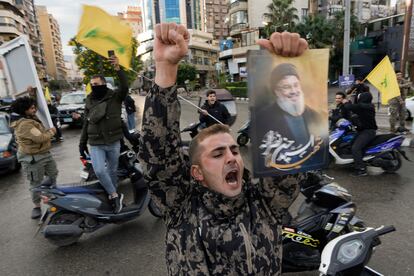
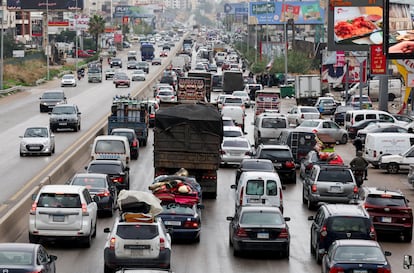
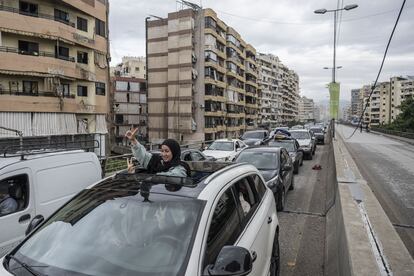
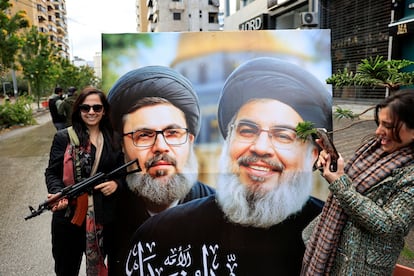
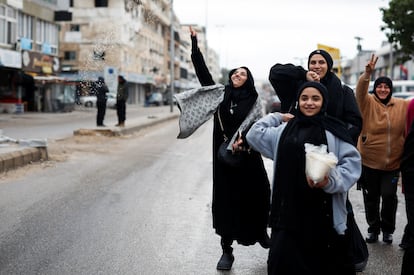
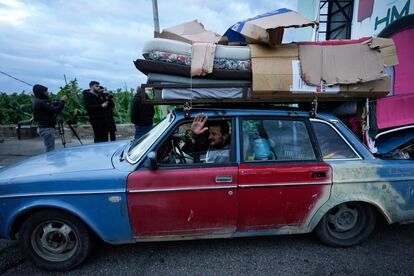
On the road south and towards Dahiye, the suburb of Beirut, citizens on motorbikes with Hezbollah flags were seen this morning making victory signs and with mattresses and large bags placed on top of the vehicles. In this neighborhood of the Lebanese capital, a Shiite fiefdom severely punished by Israeli bombings in recent months, the atmosphere was one of victory this morning among the people who have remained in the place and those who were arriving. Rifle shots could be heard to celebrate the ceasefire. In cities such as Sidon, Tyre, Baalbek or the Bekaa Valley, where the Israeli army had not been deployed, hundreds of people have also made their way back to their homes.
The president of the Lebanese Parliament, Nabih Berri, – leader of the Shiite Amal party and Hezbollah’s main interlocutor for the agreement announced last night by the United States – has called on the displaced to “return with pride to their land”, while the Lebanese army asks citizens not to rush back to southern villages where Israeli troops are deployed. Berri has assured that the truce closes the “most dangerous” chapter for Lebanon, which now enters a “new phase” of “hope and reconstruction.”
For his part, Sami Abu Zuhri, Hamas leader, declared this Wednesday that the group “appreciates” Lebanon’s right to reach an agreement that protects its people and that it hopes for another agreement that ends the war in Gaza. The Qatari authorities also expressed their hope that this understanding between the parties will lead to another similar truce in Gaza, where the death toll now exceeds 44,000, according to Hamas.


